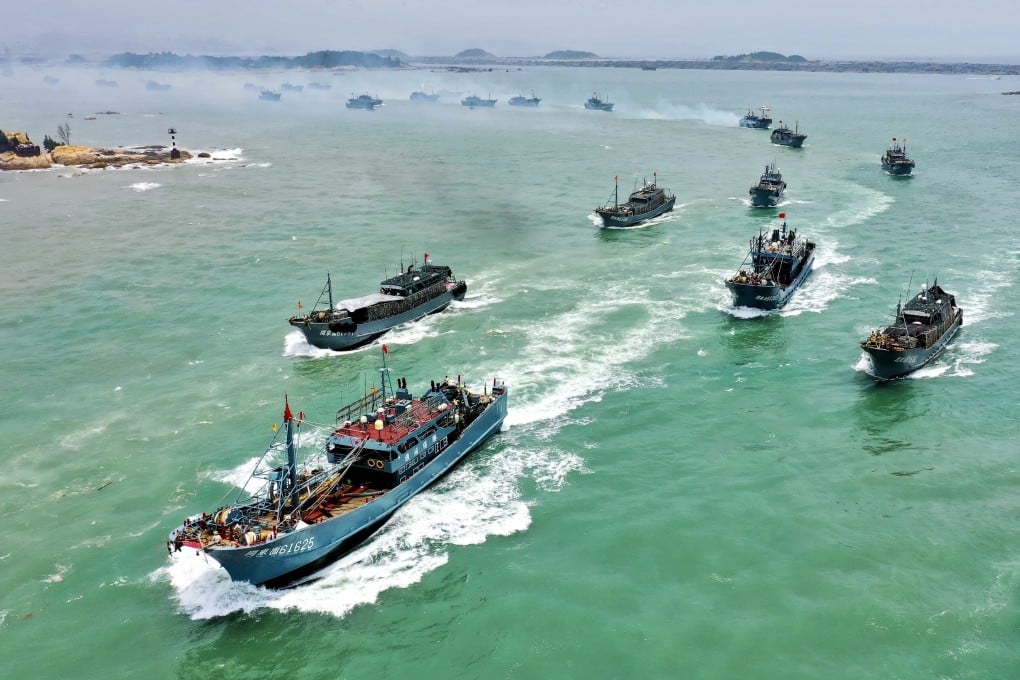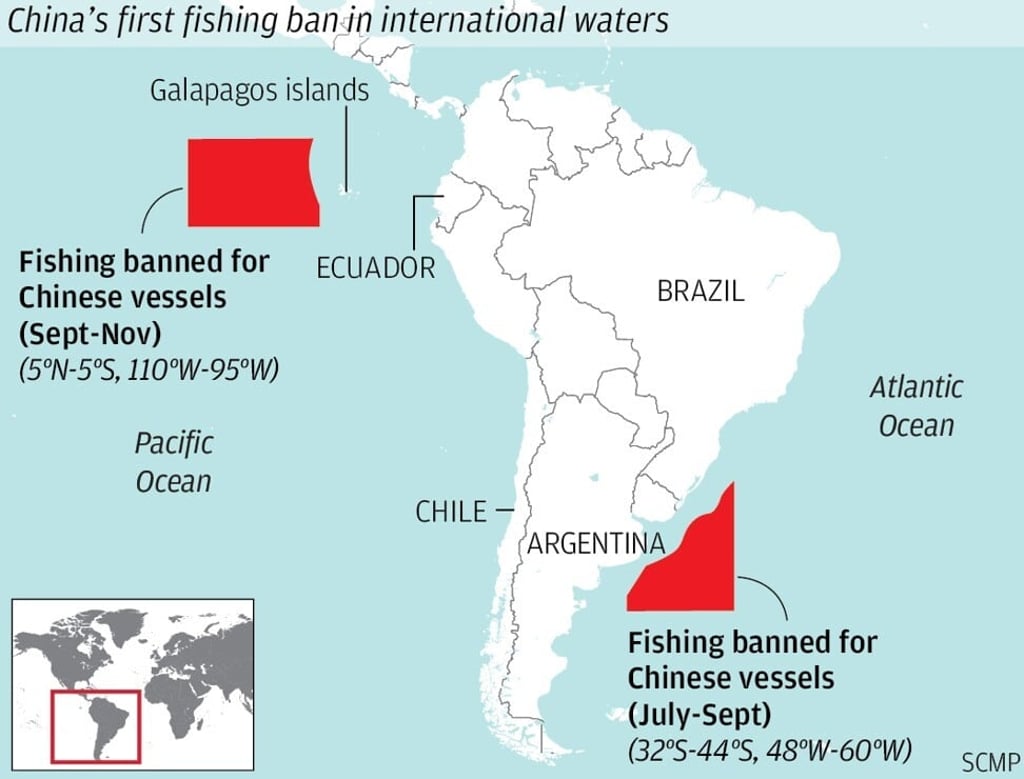China bans squid catch in some overseas waters with overfishing in spotlight
- Three-month halt in designated areas to protect populations of squid, with Chinese boats accounting for up to 70 per cent of the global catch
- Ban follows backlash against the country’s fishers, accused of violating sovereign rights of coastal states and damaging ecosystems

The moratorium, effective from July, bans all Chinese fishing boats from operating in the designated areas, which are spawning grounds for squid – the main catch of the country’s vessels in international waters, according to the Ministry of Agriculture and Rural Affairs.
“The first fishing ban in international waters … shows that China is willingly and proactively collaborating with relevant coastal countries and international organisations in setting up recommendations and measures to protect the marine resources in international seas,” said Liu Yadan, the deputy secretary of the China Agricultural Association for International Exchange.
The ban comes as China faces a backlash over its fishing fleets, most recently for hundreds of vessels that converged around marine sanctuaries off Ecuador and the Galapagos Islands. Ecuador said it registered a complaint about the fleet and informed China’s authorities that Ecuador would defend its maritime rights.
Chinese fishing vessels have also been in confrontations near Africa and the Korean peninsula.
On Sunday, US Secretary of State Mike Pompeo issued a statement that noted the vessels near the Galapagos, and criticised Chinese fishing fleets for violating sovereign rights of coastal states and damaging ecosystems.
